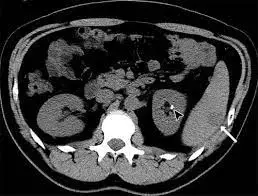- Home
- Medical news & Guidelines
- Anesthesiology
- Cardiology and CTVS
- Critical Care
- Dentistry
- Dermatology
- Diabetes and Endocrinology
- ENT
- Gastroenterology
- Medicine
- Nephrology
- Neurology
- Obstretics-Gynaecology
- Oncology
- Ophthalmology
- Orthopaedics
- Pediatrics-Neonatology
- Psychiatry
- Pulmonology
- Radiology
- Surgery
- Urology
- Laboratory Medicine
- Diet
- Nursing
- Paramedical
- Physiotherapy
- Health news
- Fact Check
- Bone Health Fact Check
- Brain Health Fact Check
- Cancer Related Fact Check
- Child Care Fact Check
- Dental and oral health fact check
- Diabetes and metabolic health fact check
- Diet and Nutrition Fact Check
- Eye and ENT Care Fact Check
- Fitness fact check
- Gut health fact check
- Heart health fact check
- Kidney health fact check
- Medical education fact check
- Men's health fact check
- Respiratory fact check
- Skin and hair care fact check
- Vaccine and Immunization fact check
- Women's health fact check
- AYUSH
- State News
- Andaman and Nicobar Islands
- Andhra Pradesh
- Arunachal Pradesh
- Assam
- Bihar
- Chandigarh
- Chattisgarh
- Dadra and Nagar Haveli
- Daman and Diu
- Delhi
- Goa
- Gujarat
- Haryana
- Himachal Pradesh
- Jammu & Kashmir
- Jharkhand
- Karnataka
- Kerala
- Ladakh
- Lakshadweep
- Madhya Pradesh
- Maharashtra
- Manipur
- Meghalaya
- Mizoram
- Nagaland
- Odisha
- Puducherry
- Punjab
- Rajasthan
- Sikkim
- Tamil Nadu
- Telangana
- Tripura
- Uttar Pradesh
- Uttrakhand
- West Bengal
- Medical Education
- Industry
Partial splenectomy preserves splenic function for benign lesions in pediatric patients

Partial and total splenectomy results in a good prognosis in benign splenic lesions in pediatric patientsaccording to a recent study published in the BMC Surgery
Benign splenic lesions are rarely encountered. This study aimed to review the clinical characteristics and surgical outcomes in a case series of 30 pediatric patients.
From January 1st, 2001 to December 31st, 2021, 30 pediatric patients from a single centre were consecutively included. Electronic medical records were reviewed and patients were followed up. Clinical presentations, imaging features, surgical procedures, pathological diagnoses, and prognoses were summarized. The lesion locations and 7-day postoperative platelet levels were compared between total and partial splenectomy patients.
Results:
- Eighteen males and twelve females were included, with mean age at surgery 116.4 ± 43.6 months. The clinical presentations included abdominal pain (16/30), splenomegaly (6/30), skin petechia (2/30), hemolytic jaundice (1/30), and no symptoms (5/30).
- Pathological diagnoses included congenital epithelial cyst (CEC, 17/30), vascular malformation (8/30), sclerosing angiomatoid nodular transformation (SANT, 3/30), and hamartoma (1/30), and leiomyoma (1/30).
- Patients who underwent total splenectomy were more likely to have a lesion involving the hilum than those undergone partial splenectomy
- The 7-day postoperative platelet level was higher in total splenectomy patients than in partial splenectomy patients
Thus, various clinical characteristics of pediatric benign splenic lesions are summarized. The most common pathological diagnoses are congenital epithelial cyst and vascular malformation. Partial and total splenectomy results in a good prognosis with a low recurrence rate and the former is preferred to preserve splenic function if possible.
Reference:
Wang, Z., Peng, C., Wu, D. et al. Surgical treatment of benign splenic lesions in pediatric patients: a case series of 30 cases from a single centre. BMC Surg 22, 295 (2022). https://doi.org/10.1186/s12893-022-01745-2
Keywords:
Spleen benign lesion, Splenectomy, Pathology, Imaging, Pediatric, Prognosis, Zengmeng Wang, Chunhui Peng, Dongyang Wu, Kai Wang, Jiatong Xu, Jihang Sun, Wenbo Pang, Cailin Ding & Yajun Chen, BMC Surgery
Dr. Shravani Dali has completed her BDS from Pravara institute of medical sciences, loni. Following which she extensively worked in the healthcare sector for 2+ years. She has been actively involved in writing blogs in field of health and wellness. Currently she is pursuing her Masters of public health-health administration from Tata institute of social sciences. She can be contacted at editorial@medicaldialogues.in.
Dr Kamal Kant Kohli-MBBS, DTCD- a chest specialist with more than 30 years of practice and a flair for writing clinical articles, Dr Kamal Kant Kohli joined Medical Dialogues as a Chief Editor of Medical News. Besides writing articles, as an editor, he proofreads and verifies all the medical content published on Medical Dialogues including those coming from journals, studies,medical conferences,guidelines etc. Email: drkohli@medicaldialogues.in. Contact no. 011-43720751


